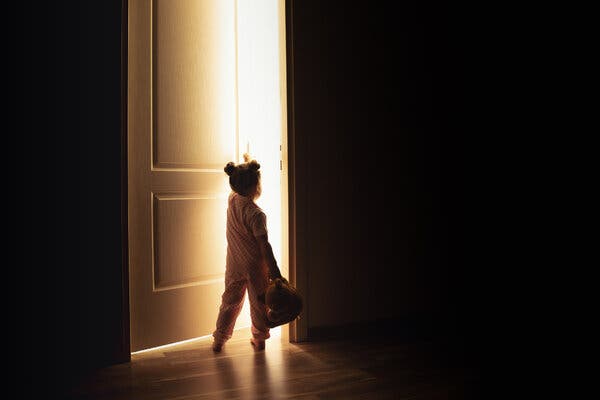
Advertisement
The Checkup
Missing social contacts and altered routines, disturbed sleep and eating habits can be particularly intense for the kids with developmental challenges.

Franscheska Eliza has a 9-year-old son with autism spectrum disorder, attention deficit hyperactivity disorder, anxiety and sensory issues. Before the pandemic, he was in a program in the Bedford, Mass., public schools designed for children with autism.
This meant her son, Rafael, was in a special classroom, but also was a member of the regular third-grade class, and could join them for morning meeting or some academic subjects. He had a dedicated aide who worked with him when he got anxious. This was his first year in the school, and the beginning of the year was tough, but by March, things were going well.
Then came Covid-19. At first, Ms. Eliza said, her son was excited to be home. “He was happy that he didn’t have to get up early for school,” she said.
It took a while to get the special education classes up and running virtually, but when they were available, he initially did well. He was happy to see his teachers and very interested in the computer technology. But when the teachers started giving his mother extra work to do with him, things got harder.
“He started becoming very aggressive,” Ms. Eliza said. “He didn’t want to work with me. He didn’t want me to help him with the problems; he wanted me to give him the answers.” Problem behaviors from when he was much younger started to come back: “He didn’t see me as a teacher — he would become very aggressive with me and start hitting me.”
Many children had academic and social issues being at home, but “for kids with developmental challenges, the challenges got exacerbated by Covid,” said Dr. Marilyn Augustyn, a developmental and behavioral pediatrician at Boston Medical Center and professor of pediatrics at Boston University School of Medicine. Some children aren’t getting their therapy, some miss being in the classroom, and some parents decided to stop medications, or couldn’t get refills.
Dr. Jenny Radesky, a developmental behavioral pediatrician who is an assistant professor of pediatrics at Michigan Medicine C.S. Mott Children’s Hospital in Ann Arbor, said, “some children were showing angry outbursts, intense crying episodes, signs they were emotionally dysregulated.”